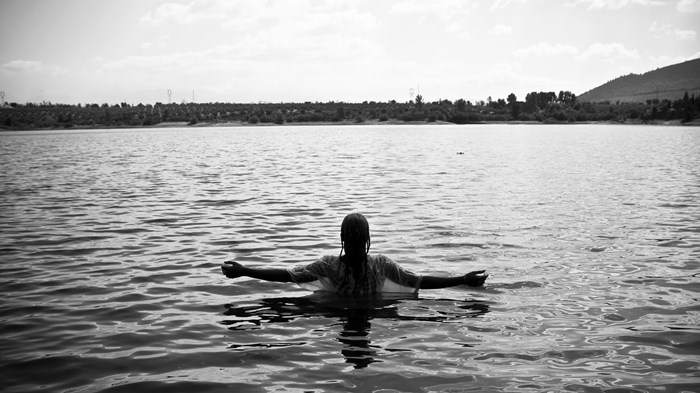
What is the history of baptism or the baptismal ceremony? John the Baptist baptized Jews before Christ came on the scene. Where did he come by the practice of baptism?
—Mike
Depending on which Reformer you agree with, most Christians view baptism either as the means of salvation and entry into the church or as a sign of Christ's redemptive work in the converted. In both cases, the new believer is considered wholly regenerated, and baptism seals this radical change.
But in first-century Judaism, baptism had a different meaning. In the book of Leviticus, God instructs Jews to cleanse themselves from ritual impurities, contracted through such acts as touching a corpse or a leper. Washing primarily fulfilled the legal requirements of ritual purity so that Jews could sacrifice at the Temple. Later, as "God-fearers" or "righteous" Gentiles expressed their desire to convert to Judaism, priests broadened the rite's meaning, and along with circumcision, performed baptism as a sign of the covenant given to Abraham.
While Christians may relate to baptism as a sign of covenant and purity before God, these still don't bridge the gap to John the Baptist's "baptism of repentance"-or to the messianic thrust of his message. While there's still room for speculation, one possible bridge is the community at Qumran-the ascetic desert sect best known for creating the Dead Sea scrolls. Like orthodox Jews, the Qumran sectarians baptized for reasons of ritual purity. But their Manual of Discipline, or the community rule, also stated that a person could not become clean if he failed to obey God's commandments. "For it is through the spirit of God's true counsel concerning the ways of man that all his sins be expiated," observes the Manual, "and when his flesh is sprinkled with purifying water, it shall be made clean by the humble submission of his soul to all the precepts of God."
Members of the Qumran community also had a clear apocalyptic vision of the future. Having endured centuries of foreign rule, these Jews longed for freedom from oppression, and their writings pine for the arrival of Israel's messiah. The Manual requires that those wishing to enter Qumran "shall go into the wilderness to prepare there the way of Him; as it is written, Prepare in the wilderness the way of the Lord, make straight in the desert a path for our God." John the Baptist quoted the same passage from Isaiah in his call to baptism in the Jordan River.
Some scholars think John the Baptist may have been a member of the Qumran sect. His ministry did center in the same area. But even if he wasn't, John's message was compelling to those familiar with the desert ascetics: "I baptize you with water of repentance, but he who is coming after me is mightier than I, whose sandal I am not worthy to carry; he will baptize you with the Holy Spirit and with fire."
*The New Catholic Encyclopedia, second edition, offers a succinct overview of the history of baptism in Judaism and Christianity.
*Published over 20 years ago, Leonard F. Badia's The Qumran Baptism and John the Baptist's Baptism (University Press of America, 1980), still succeeds as a fair and detailed treatment of Qumran's beliefs about and practice of baptism. J. Julius Scott Jr.'s Customs and Controversies (Baker Books, 1995) sets Qumran in its social and religious context.
*For the complete text of the Manual of Discipline, see Geza Vermes' The Complete Dead Sea Scrolls in English (Allen Lane, 1997).
Steven Gertz is editorial coordinator of Christian History.
Copyright © 2003 by the author or Christianity Today/Christian History magazine.
Click here for reprint information on Christian History.

Support Our Work
Subscribe to CT for less than $4.25/month




























